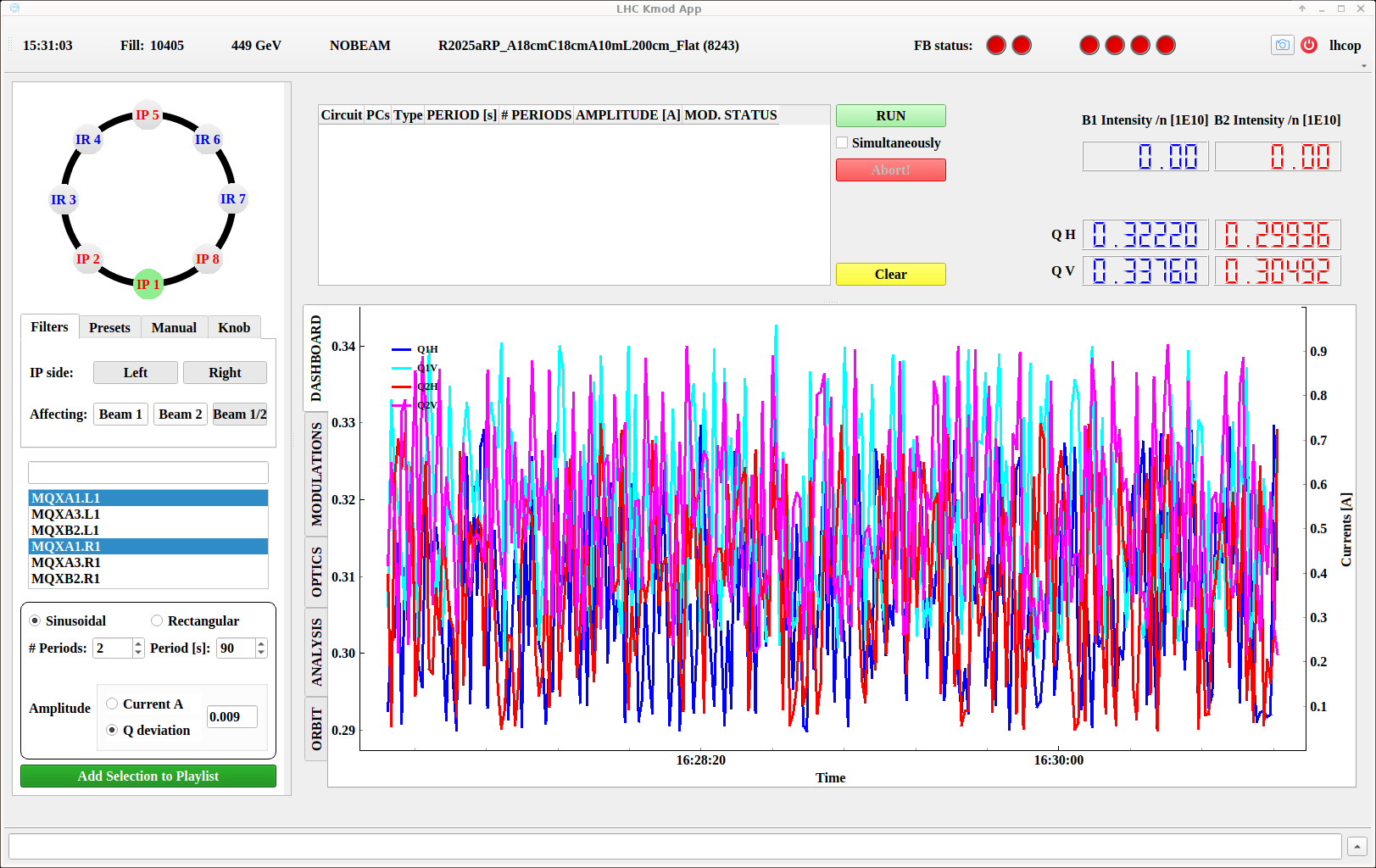Performing a Modulation¶
Performing a modulation is rather simple. This page will showcase the interface and workflow, but more details and checks that should be followed are available in the Kmod Measurement Procedure.
Selecting Circuits¶
In the top left of the GUI window, all locations with circuits available for modulation are displayed, in a circular manner similar to their position in the machine.
To start, select a given IP in that view by clicking on it. It will display with a green background. The available circuits at this location will appear in the list view below.
In the Filters section, select the side(s) of the location (Left, Right or both) and the affected beams (Beam 1, Beam 2 or both) for the modulation. In the list below select the circuits to be modulated.

Choosing Settings¶
Once the desired circuits are selected, move on to the Settings section just below and choose:
- The modulation waveform (
SinusoidalorRectangular). - The number of modulation periods.
- The duration of a single modulation period.
- The modulation amplitude, either as
CurrentorQ(tune) deviation.
OMC Defaults
Default values we usually use are: 2 period of 90s each, Sinusoidal, and with aQ deviation of 0.009 (for injection tunes).
Warning
Be careful with the Q deviation setting, which should be based on the current working point. One tune will rise by the selected amount (at the height of the modulation), while the other will drop by the same amount during modulation.
This could inadvertently lead to a Closest Tune Approach (CTA) or resonance crossing if the setting was chosen wrongly. See the Kmod Measurement Procedure for more relevant checks.
Once the settings are chosen, click the green Add Selection to Playlist button at the bottom left of the panel. The modulation plan will show up in the upper center part of the GUI window.
Modulating¶
Repeat the previous steps for all circuits you want to modulate. Once all the desired modulations are added to the playlist, click the green RUN button just to its right. It is not recommended to run different modulations simultaneously.
The modulation is performed automatically and as it progresses the selected circuits' currents as well as the measured tunes for each beam are displayed in the lower center part of the GUI.
When the modulation is finished it will show up in the MODULATIONS tab of the lower center part of the GUI, ready to be analyzed. The finished modulation is automatically logged to the LHC-OMC logbook.